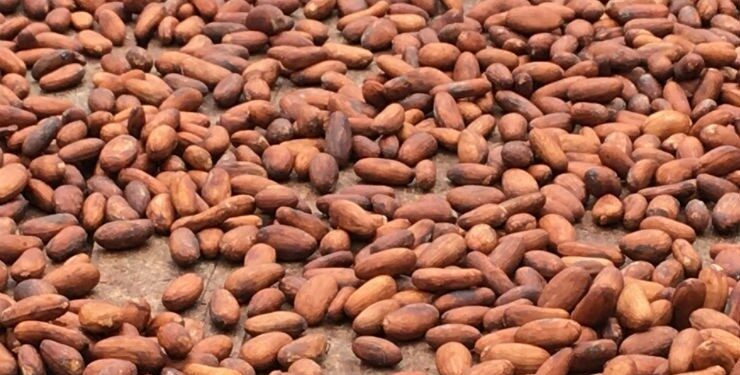Cocoa records highest weekly gain in 24 years at $6,470
The major cocoa producers in West Africa- Ghana and Ivory Coast have been battered by the El Nino climatic condition curtailing harvests.
The upward rise of cocoa prices continues unabated, hitting a new high of $6470 per ton in New York amid growing concerns over supply shortages across West Africa.
On Monday, futures saw an increase of up to 4.6%, following the largest weekly surge since 1999. In London, the commodity’s price jumped by 3.5%.
The spike in prices is attributed to drought and disease affecting crops in major West African producing countries, potentially leading to higher expenses for chocolate manufacturers, which may ultimately be transferred to consumers.
Indications of dwindling supplies from major exporters are becoming increasingly evident. In the leading cocoa-producing country, Ivory Coast, bean arrivals at ports for export are approximately a third lower than the rates seen last year, and Nigerian exports experienced a decline in January.
E.U’s law against deforestation
Last week, coffee producers across Europe urged the EU to delay implementation of a rule that bans imports of cocoa from newly deforested lands.
Under the new regulation, companies will be required to track their supplies to specific plots of land and provide evidence, including the geolocation coordinates of the farms. Non-compliance will lead to hefty fines.
In December, AP News reported an investigation of cocoa illegally grown in the Omo Forest reserve in Ogun state Nigeria being shipped to chocolate factories in Europe, the United States and Canada.
The documentary indicated major agro companies like Olam and Tulip although they denied knowing the source of the cocoa.
Climate change and cocoa production
The major cocoa producers in West Africa- Ghana and Ivory Coast have been battered by the El Nino climatic condition curtailing harvests.
El Nino triggers unusual weather patterns, leading to drought in certain regions and floods in others, with predictions indicating it will persist until April.
Climate change is significantly impacting agricultural practices. Ghana, known for its cocoa production, cultivates the bean in six regions: Eastern, Ashanti, Brong Ahafo, Central, Volta, and Western.
Yet, declining soil fertility and erratic rainfall patterns have caused a shift in production towards the western part of the country.


